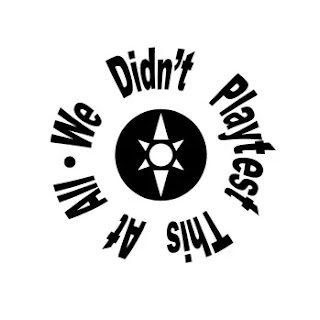(Image from https://www.flickr.com/photos/waltjabsco/5021267612 under CC-BY-NC-ND licence)
This post may be even more incoherent and rambling than normal, but I wanted to stick down a few thoughts that I may tidy up and extend at some point in the future!
I was partway through reading Rejuvenile by Christopher Noxon recently - this isn't a reflection on that book, but something it made me think about btw! There are plenty of examples he gives in that book about adults acting in "child-like" (not necessarily "childish") ways that are presented as though play is more acceptable in adulthood now - in all sorts of ways. I've also seen / read other stuff over the last few years that claims that play is now much more acceptable for adults. We can play on skateboards, collect toys, build Lego models, etc., that are often presented as "look, adults are allowed to play".
But I've my doubts about the sort of examples that are thrown about to claim this, which made me think about what sort of play is really seen as "acceptable" and what isn't. About why adults generally aren't allowed to be playful in modern Western societies. (I know there is stuff about this in some classic play texts I'll have to go back to, just throwing a few ideas down here for myself!)
I've a hunch that the types of play that are generally seen as acceptable are fairly narrow - it's fine for adults to have hobbies that are fairly discrete in time and space (you can do it after work? Without scaring the neighbours?). It's fine for adults to play in ways that make them effective consumers (have you seen the price of Lego sets?!). It's fine for adults to do organised, controlled activities (clubs, sports, etc.). But if you aren't being a good capitalist consumer, if you are allowing playfulness to leak into other things, if you are making up your own rules about things (like a good player does), then those sorts of play are completely unacceptable.
Play in adults is generally allowed when it reinforces, or at least fits within, the rules set by those in power. It may even be encouraged when it results in increased profits and consumption. But I don't think playfulness is any more acceptable than it has ever been - we still need to be good worker drones 9-5, and a change in attitude could impact that. I don't think improvisational play is really encouraged - after all, if you start to play with whatever is around you, how will they fill those shipping containers with goods and keep the rich in the manner in which they've become accustomed?
Is free / improvisational / creative play more aligned with anarchy than Capitalist societies would like? If you have a playful approach to the world, prone to changing the rules to suit yourself and your communities, is this inherently anarchist in approach? Bernie De Koven used to talk about changing the game to suit the players, this is the opposite to the way power works in countries like the UK, surely, where the powerful few set the rules of the game (and sell us the kit to play it too) - they want to force us all to play the game their way. So is any attitude that puts power (however small) in the hands of otherwise powerless individuals a threat to profits, to control? Is playfulness inherently anarchist in approach, which is why it's so disapproved of in adults, and stamped out in children as quickly as possible?
So games, hobbies, sports, etc are perhaps more acceptable in adults, as they are controlled, they are selling opportunities, they are neat and contained. Freer, more imaginative play, or even worse, a playful attitude are too much of a threat to control, to profit, to power. Games / hobbies / sports are "nice" capitalist ways of behaving. Playfulness is scary, anarchist, and seen as "wrong" by those with power... who heavily influence what we all see as the "correct" way of behaving.
So a bit vague and rambling I know, but at some point I'll try and come back to this and maybe write something a bit more serious on playfulness, anarchy, and why they are unlikely to ever be seen as generally desirable in capitalist society.

